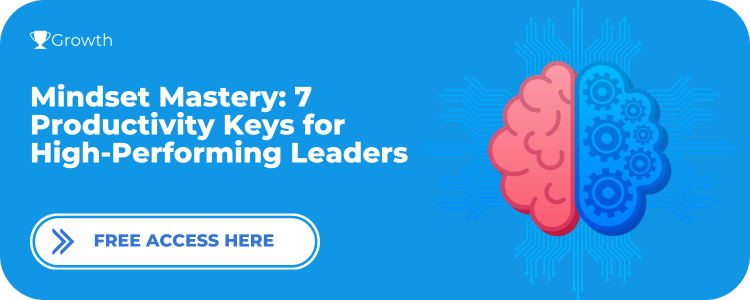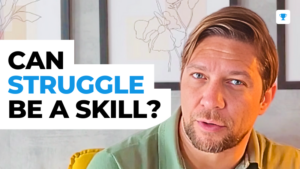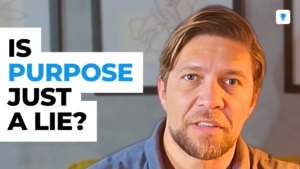
✅ FREE ACCESS: Mindset Mastery: 7 Productivity Keys For High-Performing Leaders
Have you ever found yourself chasing an ideal version of yourself, only to be disappointed by reality? Or measuring your accomplishments against someone else’s? Or maybe overthinking about yesterday’s regrets and tomorrow’s imaginary futures?
Well, today, we were going to talk about The 3 Most Dangerous Habits Killing Your Self-Confidence and actionable insights to reclaim your life and achieve the level of success you always wanted.
CTA 1
But before we get into it, make sure you grant your lifetime access to our free Workbook: Mindset Mastery: 7 Productivity Keys for High-Performing Leaders.
This is your chance to make the mindset shift you need to reclaim your confidence by using the 7 mindset keys of the 1% top-performing leaders.
The Inner Battle of Self-Confidence
In a world that often floods us with ideals, benchmarks, and relentless streams of ‘success’ stories, our self-worth feels under siege.
At the heart of this battle lies 3 most dangerous habits:
The relentless Pursuit of Perfection, where we aim for unreachable standards, sidelining the importance of growth.
The exhausting cycle of comparing ourselves to others. A fixed game dominated by social media.
The immobilizing grip of Overthinking. A maze where we find ourselves trapped in paralysis by analysis.
In this investigation, we’ll dive deep into these habits, uncovering their roots and discovering the strategies to overcome them, setting the stage for confidence and success.
The Pursuit of Perfection
The first of The 3 Most Dangerous Habits Killing Your Self-Confidence is The Pursuit of Perfection.
Imagine two painters: one who is obsessed with creating the “perfect” painting, redoing his work every time he spots even the tiniest of flaws.
And another one who is more focused on the process, learning with every brushstroke, and evolving his style over time.
While the first painter may eventually produce a masterpiece after countless attempts, by the same time, the second painter would have produced a myriad of paintings, each one telling its own story and showcasing his journey.
The difference between these 2 painters is the difference between ‘perfect’ and ‘perfect’.
‘Perfect’, as an adjective, is absolute. It’s like chasing the horizon, a destination you can see but never reach.
‘Perfect’, as a verb, is not absolute. It’s grounded on improvement, growth, and betterment.
Perfectionism, more than just wanting to do well, is the use of the adjective form of perfection. An obsessive need to meet impossibly high standards.
In his book Finish: Give Yourself the Gift of Done , John Acuff points out that:
“Perfectionism is not a quest for the best. It is a pursuit of the worst in ourselves, the part that tells us that nothing we do will ever be good enough – that we should try again.”
This conditioning leads to a fear of mistakes and the development of a mindset where they are seen as personal flaws, not stepping stones.
The antidote?
If you feel that your self-confidence is being hurt by other people’s judgment, know that people will never judge who’s doing less than they are.
Allow yourself the space to make mistakes, to learn, and to grow.
Becoming is better than being.
Comparing Yourself to Others
The second of The 3 Most Dangerous Habits Killing Your Self-Confidence is Comparing Yourself to Others
Believe it or not, our propensity to compare ourselves to others is biological.
The fact that we humans are ambulatory creatures produces hierarchies based on competence because not everyone moves with the same amount of success.
The more competent someone is in finding the best sources of food and other valuable items, the higher in the competence hierarchy they go.
And the higher up they go, the better access to resources they have, ensuring the continuation of their offspring.
Serotonin is a neurotransmitter in our brain that measures our status in reflection of the world around us.
When our status improves, serotonin release makes us feel good, reinforcing behaviors that elevate our standing.
On the other hand, a drop in status triggers a decrease in serotonin, leading to feelings of discontent, and pushing us to reclaim our position.
In a modern social media society, however, that system can be pathologized when we measure our lifespan against someone else’s highlight reel.
You see, our modern world is rife with platforms that amplify others’ successes, often filtering out their struggles.
This constant comparison can erode your self-confidence, leading to paralysis by analysis, where instead of focusing on your growth, you become obsessed with outdoing others.
So, how do we navigate this?
The answer might be simpler than you think: Compare yourself to yourself.
Why is that? Because comparing yourself to yourself is not only the most reliable source of comparison, but it’s also the only one you can actually do something about.
This internal comparison acts as a buffer, allowing you to appreciate your journey, acknowledge your growth, and set realistic benchmarks for your future.
So know this: The only difference between you and any highly successful individual is time and effort.
Overthinking
The last of The 3 Most Dangerous Habits Killing Your Self-Confidence is Overthinking.
What exactly is overthinking, and how is it different from reflecting or contemplating?
Overthinking is when you dwell on a topic, replaying it in your mind without reaching any meaningful conclusions or actions.
It’s like being trapped in a mental loop, where you rehash scenarios, second-guess yourself, and often anticipate problems that might not even exist.
Why is overthinking so damaging? Because it keeps us in a prison of past experiences or anxious about possible imaginary futures.
In her book Cognitive Behavior Therapy, Dr. Judith Beck offers a straightforward solution to escape that trap.
Whenever you catch yourself spiraling into overthought, perform a “cognitive check”.
Ask yourself: “Is this thought helping me or harming me?”
By framing it in this binary way, you can quickly assess the utility of your thought process. If it’s harmful, the very act of recognition often breaks the cycle.
So, the next time you find yourself stuck in a mental loop, pause, perform a cognitive check, and move on.
Think this way: Walking a thousand miles in the wrong direction will give you more clarity than standing still and thinking what should be your next step.
Mistakes are shortcuts.




